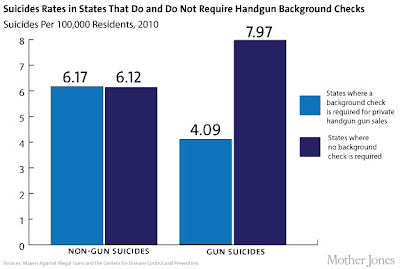
But there's always the minority outreach. Let's see how that's going...
[Washington Post:]
Rep. Don Young (R-Alaska), in an interview with a local radio station released Thursday, referred to Latinos working on a ranch by using the derogatory term “wetbacks.”
“My father had a ranch. We used to hire 50 or 60 wetbacks and — to pick tomatoes,” Young said in the interview with KRBD. “You know, it takes two people to pick the same tomatoes now. It’s all done by machine.”
The term “wetback” is a slur often used to refer to illegal Mexican immigrants. Merriam-Webster defines it as “a Mexican who enters the United States illegally,” “from the practice of wading or swimming the Rio Grande where it forms the U.S.-Mexico border.”
OK, so that's not doing it right either. Young later released what some are calling an apology, but is really just an explanation. There is no apology. "I used a term that was commonly used during my days growing up on a farm in central California," he said. "I know that this term is not used in the same way nowadays and I meant no disrespect."
In other words, "You're wrong to be offended by what I said."
"Just so we're clear, it's 2013," Steve Benen reminds us. "Republicans were recently reminded not to use words like 'aliens' and 'anchor babies' when referring to Hispanics, but apparently that advice was not all-encompassing enough, since we still have at least one congressman using the word 'wetback' -- on the air -- as if it were perfectly acceptable."
This comes on the heels of a Republican National Committeeman posting a homophobic screed on his Facebook page. And the committeeman, Dave Agema, isn't apologetic. He likewise released a statement of explanation, claiming to be the victim of harassment and playing the Helen Lovejoy "Won't somebody please think of the children!?" card, saying someone has to post these hateful lies, because "It's about maintaining the family and its importance to the well being of the children and this nation."
"And here's the problem with the wise, beltway-driven Rebranding effort," writes Dave Weigel. "You're a D.C. Republican consultant who gets booked on TV to talk about the glories of gay marriage? Good for you. I agree with you! But most of your party adamantly disagrees with you, and these people know how to write or say things that can make their way onto the Internet."
Reince Priebus may think the GOP needs to change it's image, but other than saying maybe they might possibly give an inch someday on immigration reform, no one seems willing to actually change anything. They don't want to change their policies, they don't want to change their language, they don't want to change anything. They've just decided to declare themselves friendlier to people they so far haven't removed from their enemies list. "No abortions or birth control for you, you whore!... Now vote for me because I'm pro-woman."
You can't change the perception without changing the party -- and people who think they can change the party need to check the dictionary and see what "conservative" means. It doesn't mean open to change. In fact, I always say that when a Republican talks about change, you should watch out -- it means he wants to change things back the way they were when they sucked. The party doesn't look to the future, it looks back at the fifties and wonders why we changed from that.
The perception of the party won't change until the party members change. And they're not willing to do that. In fact, most are probably incapable of doing that. And incidents like Young's keep happening because of another conservative trait: they're lecturers. They don't listen, the dictate. It's why these Republicans keep saying stupid and offense things -- then explain why they aren't gaffes, instead of apologizing. The GOP is a strict, top-down hierarchy where elites tell everyone below them what to think. Why do you think talk radio works so well for the right? They don't think they have to change, they think you have to change. They'll explain why you have to change until you do. Todd Akin thought he was winning voters to the Republican cause by educating them about rape and abortion. And take a look at Wisconsin Senator Ron Johnson -- all he ever talks about is how wrong everyone else is and how they need to listen to his teachings and become enlightened. Republicans tell, they aren't told. Not by voters, anyway.
And not, apparently, by Reince Priebus and the RNC.
-Wisco
[original photo by MACSwriter]

























